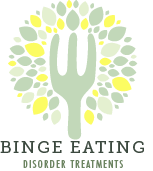Eating disorders may include conditions such as anorexia, bulimia, or binge eating disorders. They also cover food addiction, where a person may use food as a coping mechanism for anxiety, depression, or other disorders. An eating disorder treatment program addresses different types of eating disorders and addiction, helping those who have these conditions to recover.
Someone with an eating disorder may engage in certain behaviors that bring instant emotional or physical relief. In the long run, these behaviors are destructive and can lead to psychological problems or poor health. Therapy offers a way for an individual to explore their disorder and find positive solutions for recovering from the condition. Let’s take a closer look at eating disorders and addiction to understand the problems better.
Eating Disorders and Addiction: What is the Difference?
Not all eating disorders are the same. People develop a disorder for different reasons. They continue a disorder in different ways. Therefore, it is important to understand the unique differences in each problem so that you can get the right help. Common disorders may include:
Addiction
Addiction to food takes on many of the same characteristics as addiction to drugs, alcohol, or any other substance. A person may slowly consume more food as a result of long-term binging. They give in to their cravings for all types of food and continue eating regardless of the consequences.
Binge Eating Disorder
Binge eating disorder differs from addiction primarily due to the amount of food a person eats. A person binge eating disorder will eat large amounts of food in a single sitting, often gorging the food to the point of physical pain or discomfort. They will even binge when they are not hungry.
Anorexia
Anorexia is the opposite of addiction or binge eating. Someone who has anorexia suffers from an unrealistic fear of gaining weight. This comes from an obsession with their body image. They may drastically limit how much they eat or go through several days of starvation. The underlying goal is to stay in control of their weight at all costs.
Bulimia
Bulimia occurs when a person binges on large portions of food and then purges them from their body to avoid the consequences. Vomiting is self-induced through gag reflex or consuming liquids that make them throw up.
Getting Treatment for Eating Disorders
A mental health treatment center can provide help to those who are suffering from eating disorders and addiction. Treatment specialists offer a wide range of treatment programs that include evidence-based and holistic care. With the right treatment, a person who has a disorder can get the help they need for a full lifelong recovery.
Some of the main types of treatment available include:
- Cognitive-behavioral therapy
- Dialectical behavior therapy
- Acceptance and commitment therapy
- Psychotherapy
- Individual, group, and family therapy
- Inpatient and outpatient therapy
A person who has both an eating disorder and a mental health disorder may want to seek help at a dual diagnosis treatment center. Through dual diagnosis, a treatment specialist can provide a comprehensive diagnosis of all conditions and recommend the right program for recovery. Common mental disorders associated with anorexia or bulimia may include depression, anxiety, PTSD, bipolar disorder, or borderline personality disorder.
Contact a Mental Health Treatment Center Today
If you are suffering from anorexia, bulimia, or another eating disorder, then contact a dual diagnosis treatment center today. You can get help for eating disorders and addiction. To find out more about your treatment options, call a treatment center near you. Feel free to ask questions, discuss your current situation, and get started with your treatment today.








